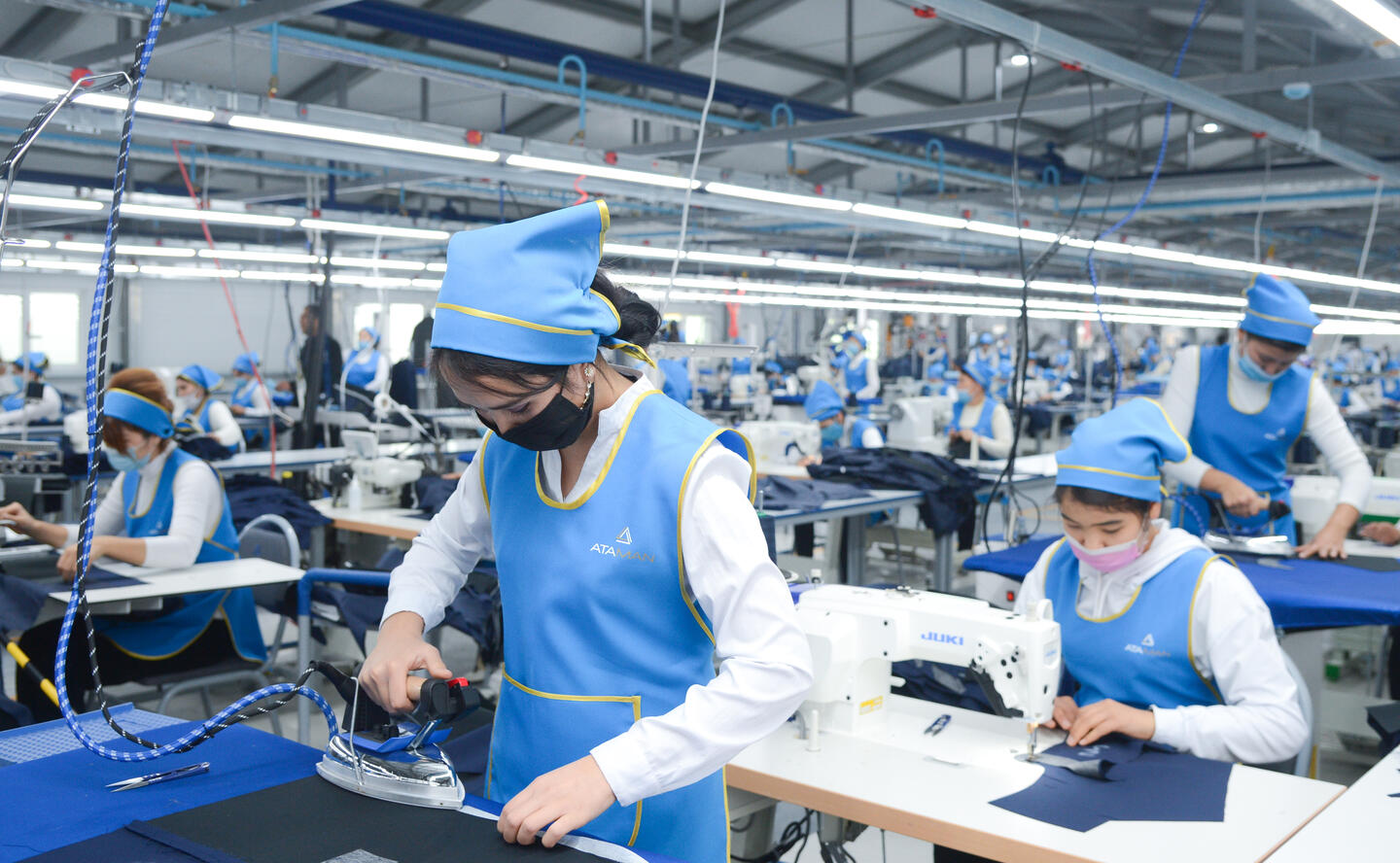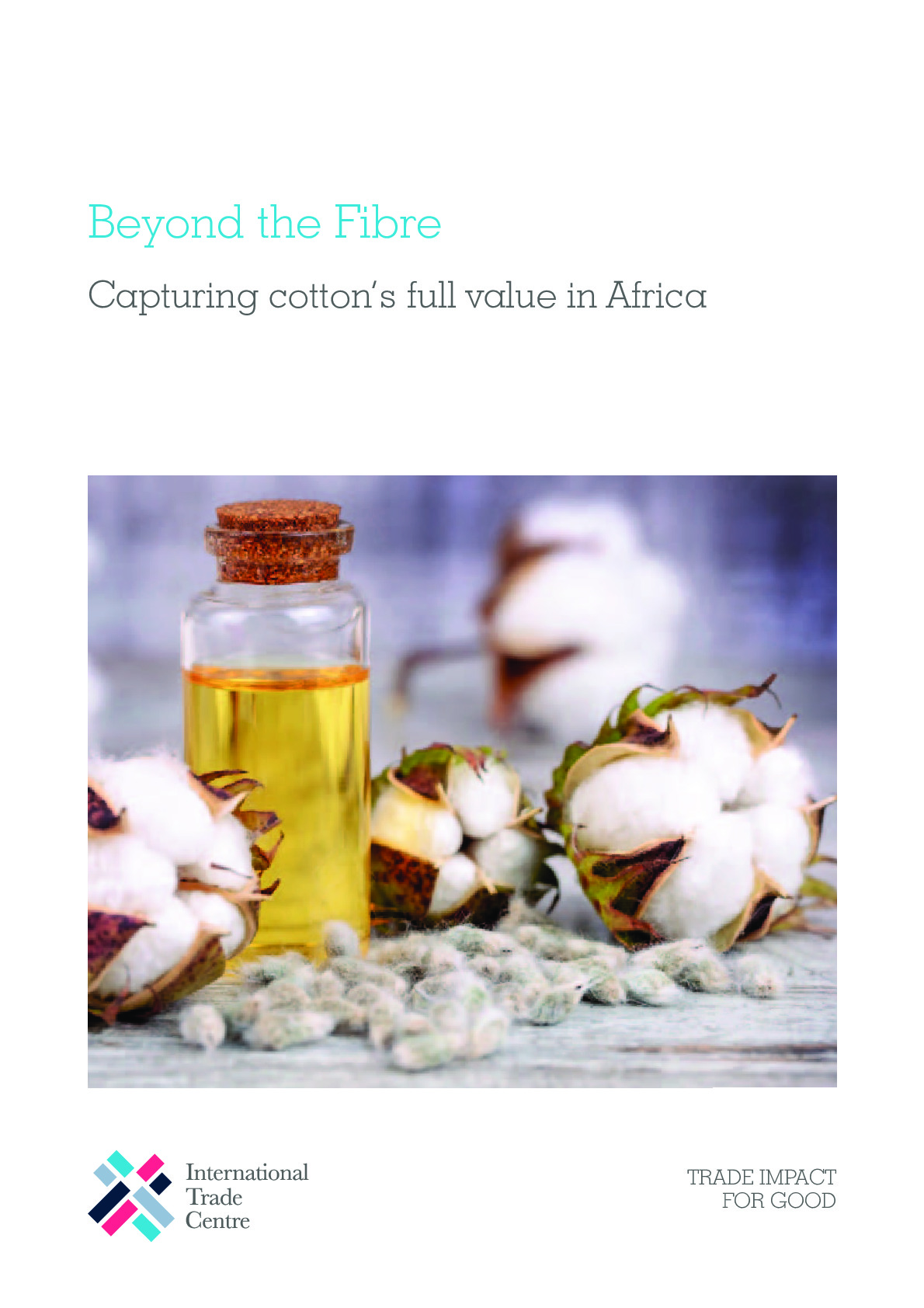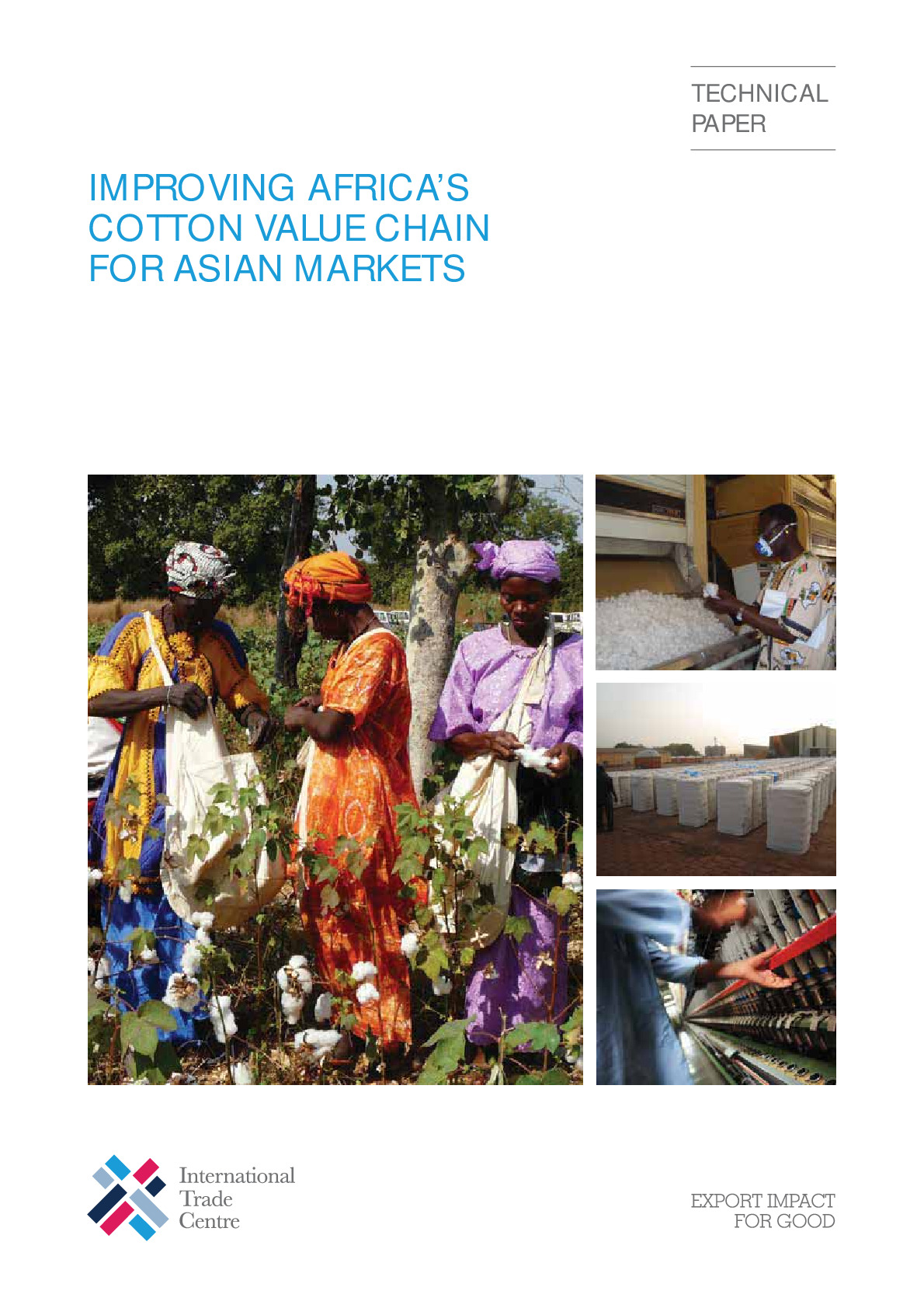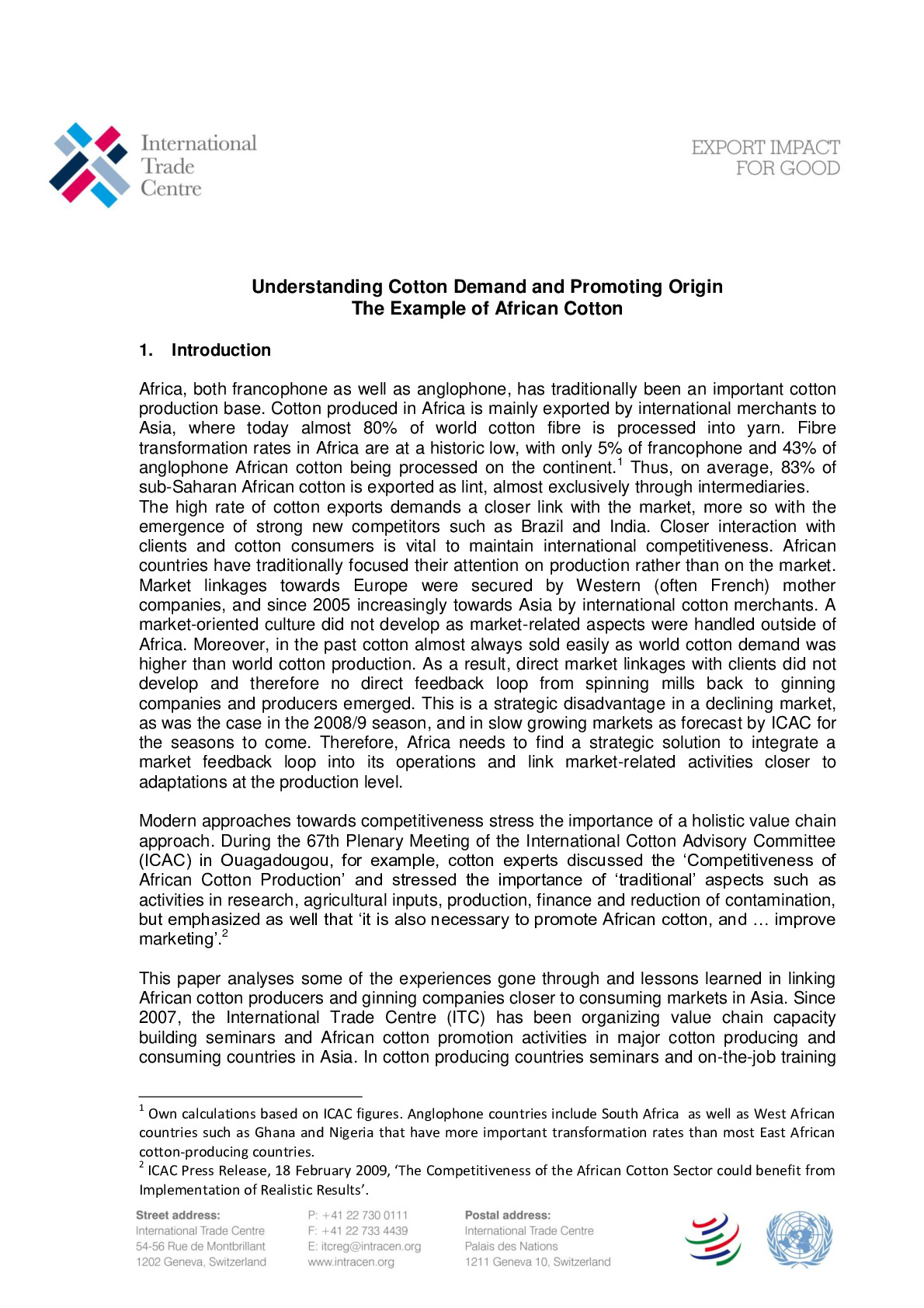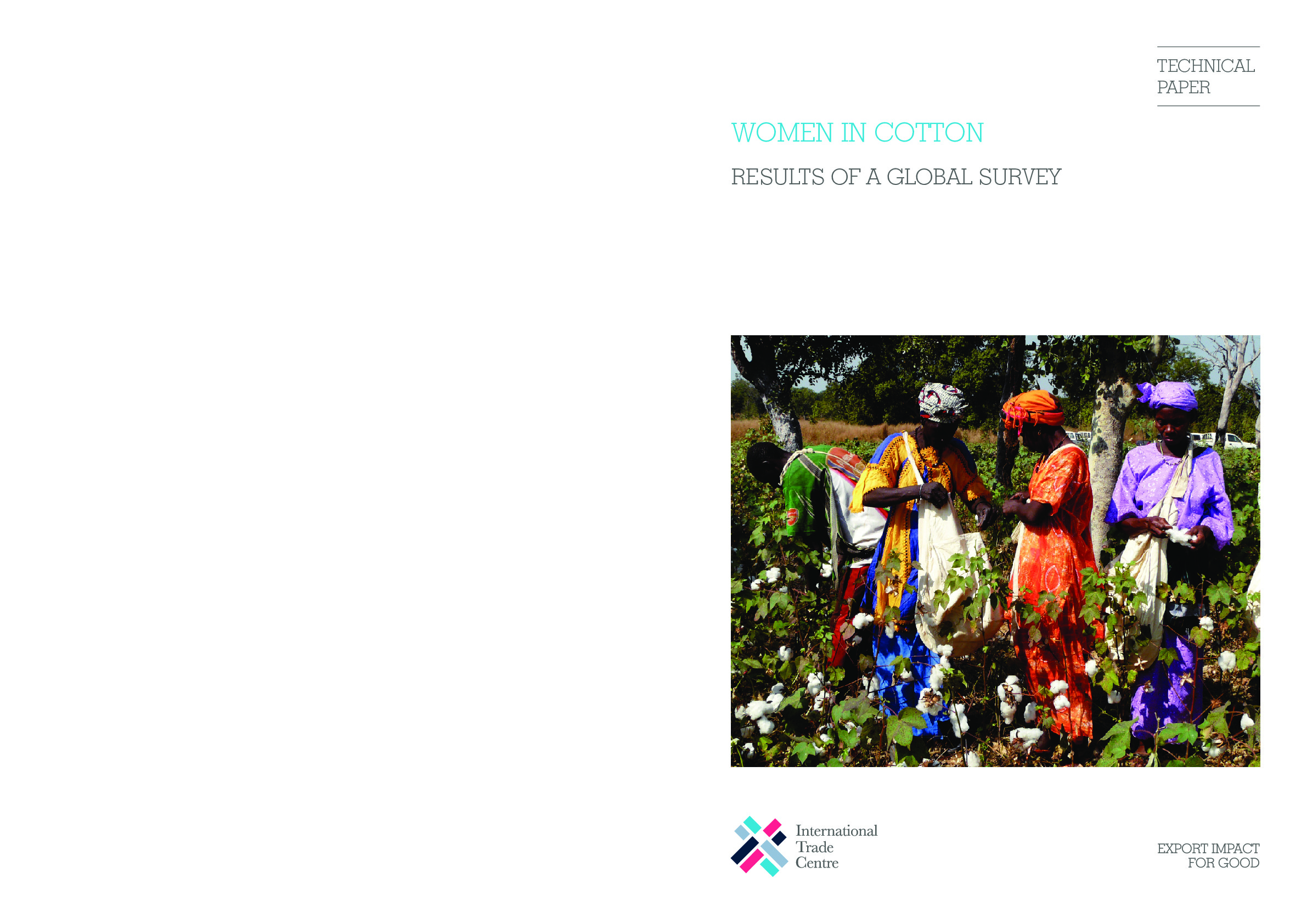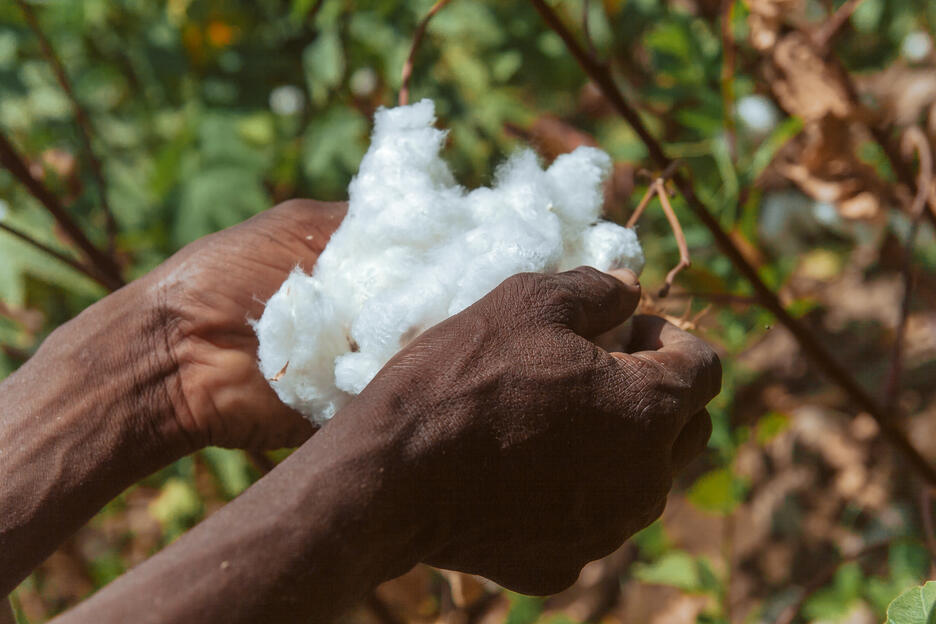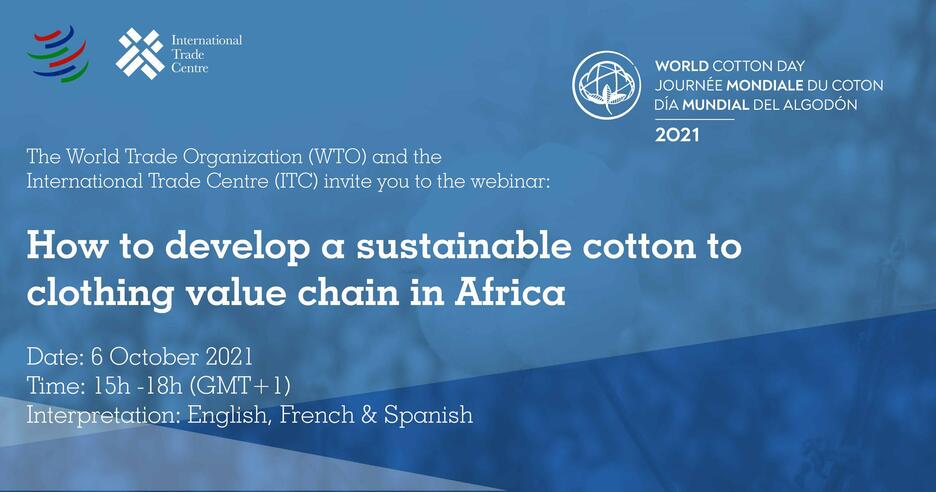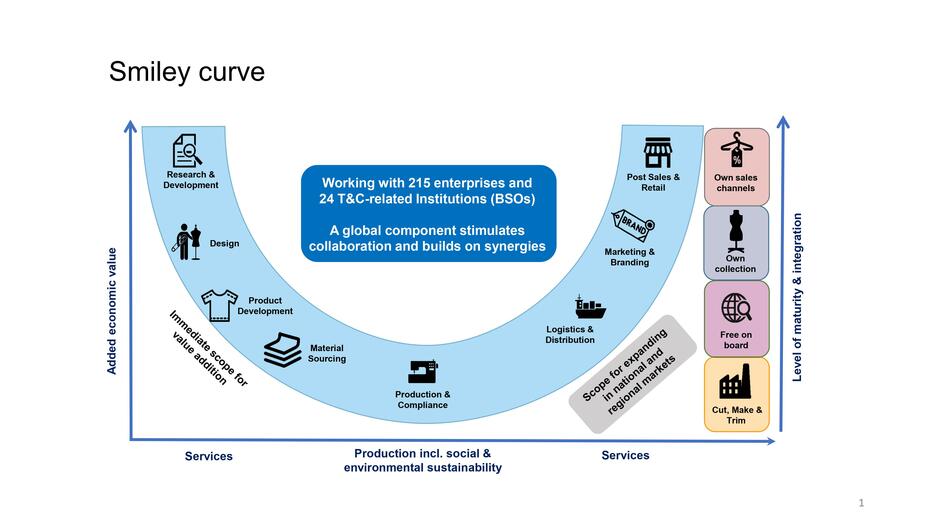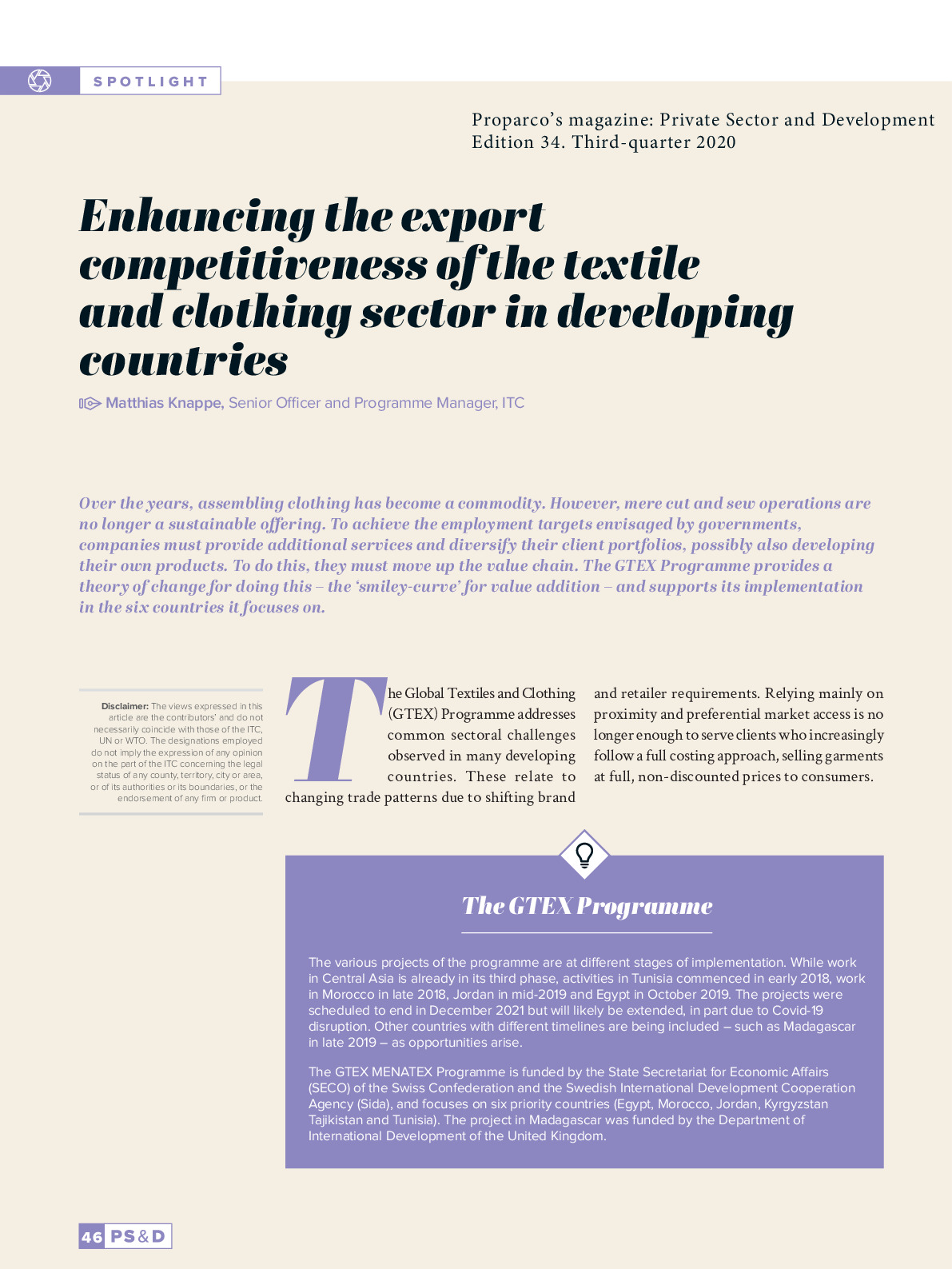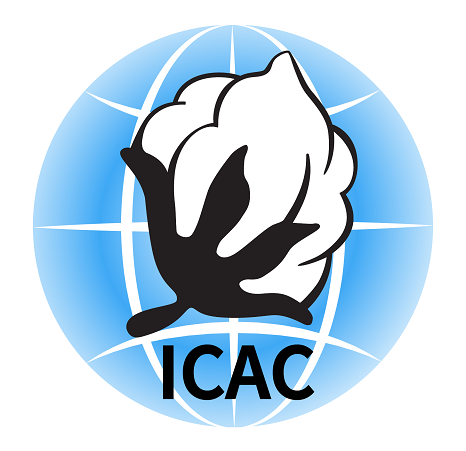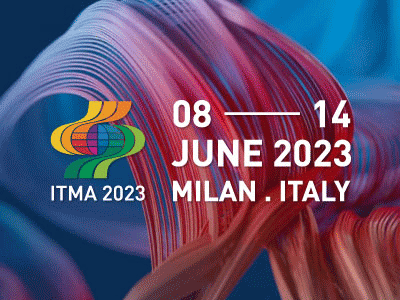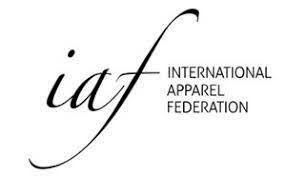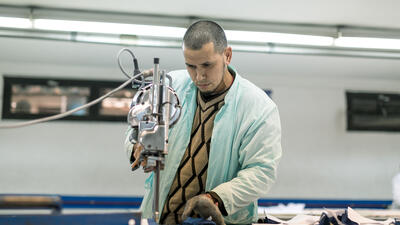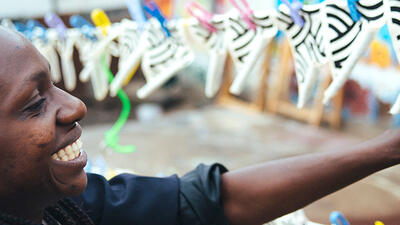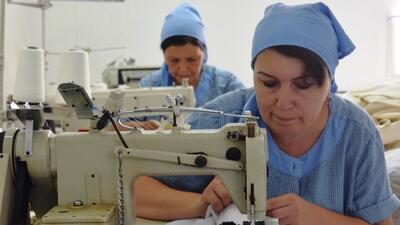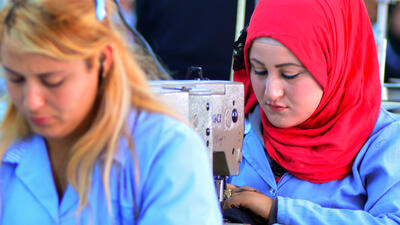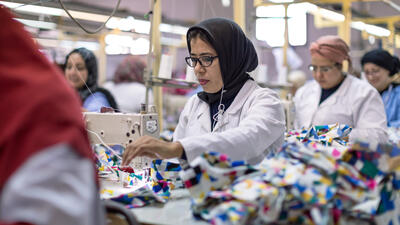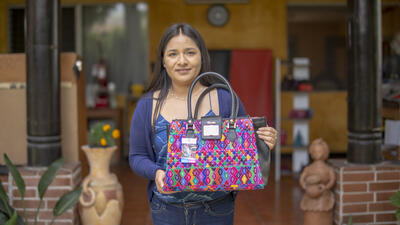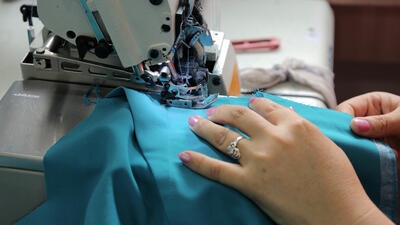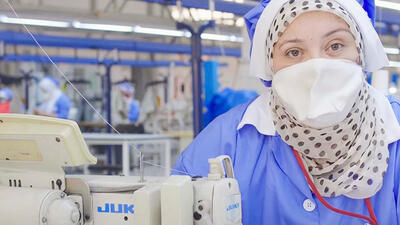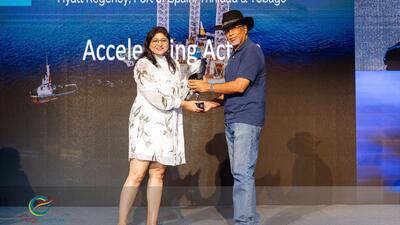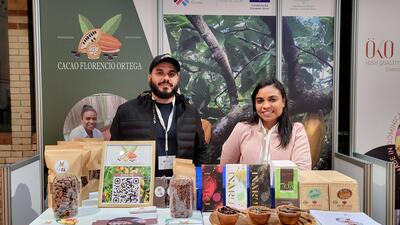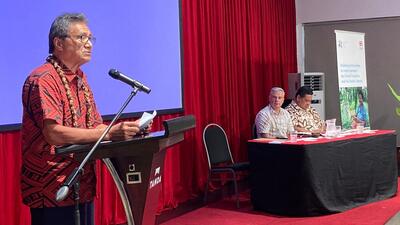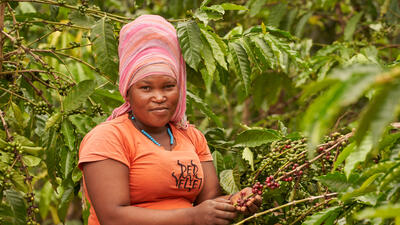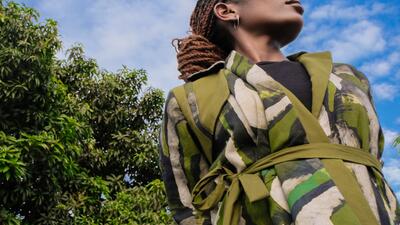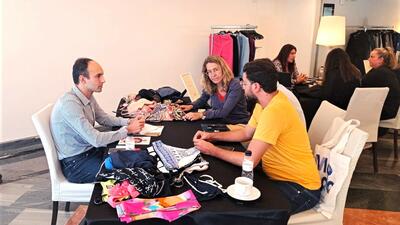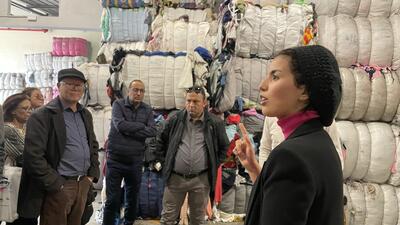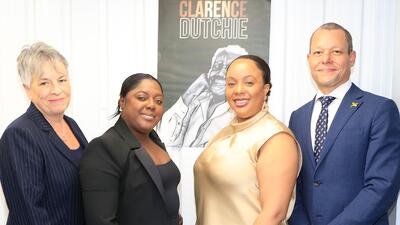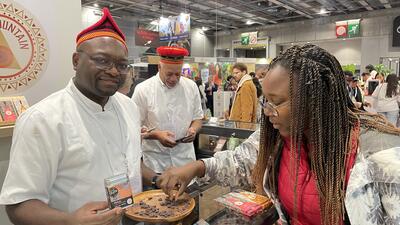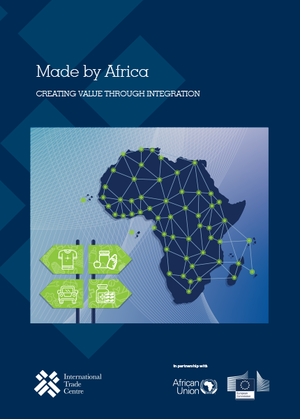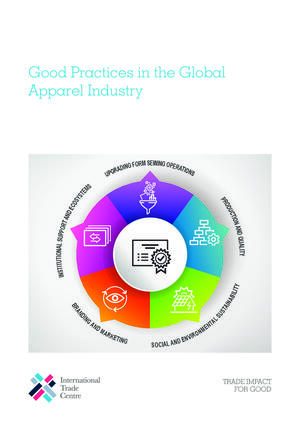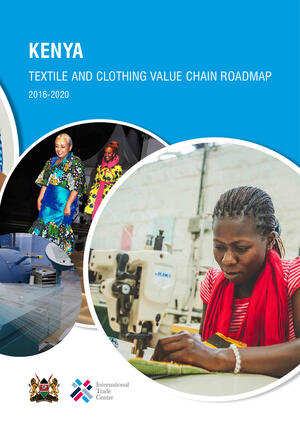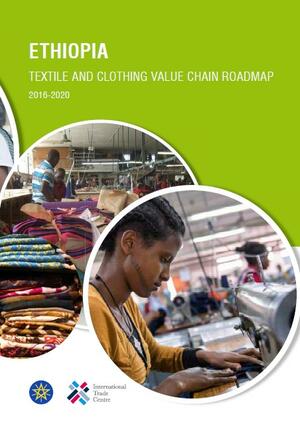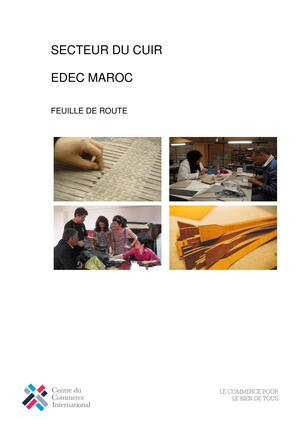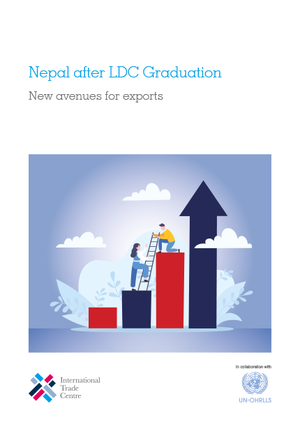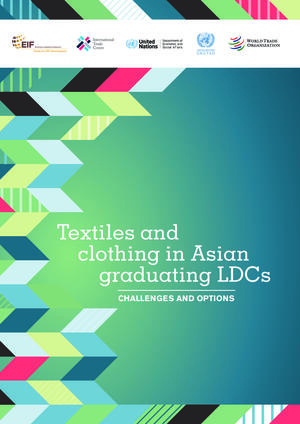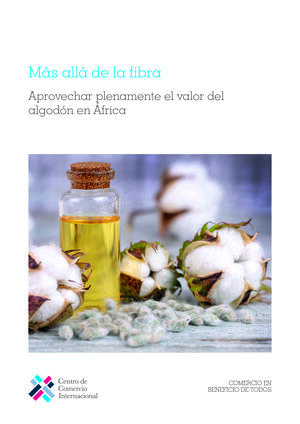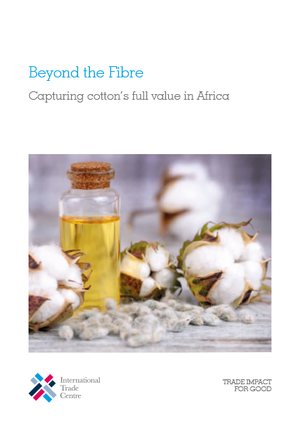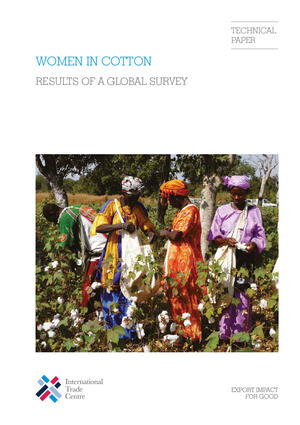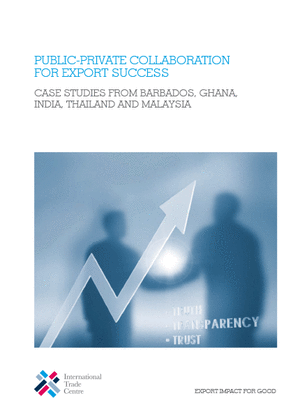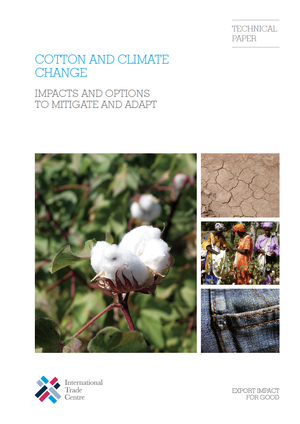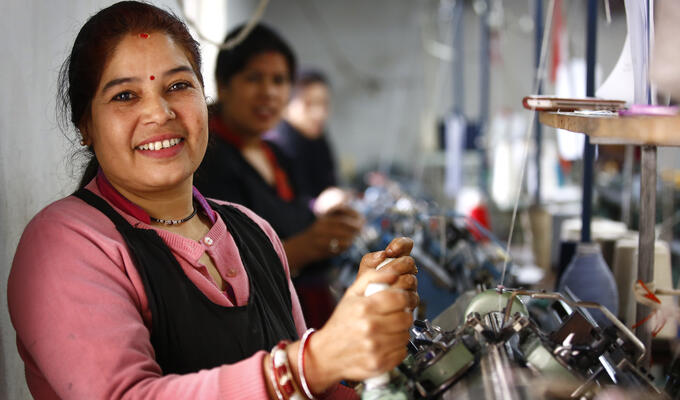
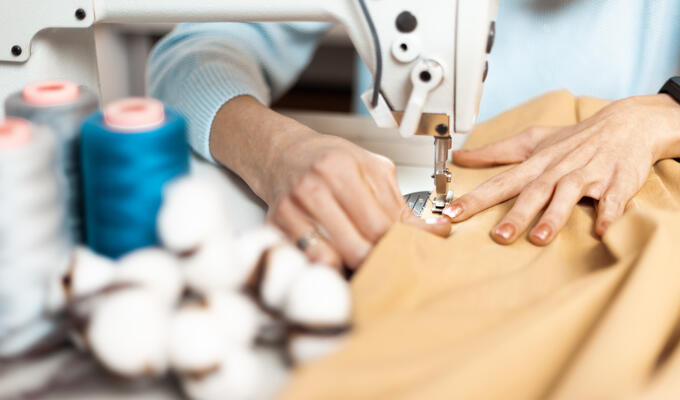
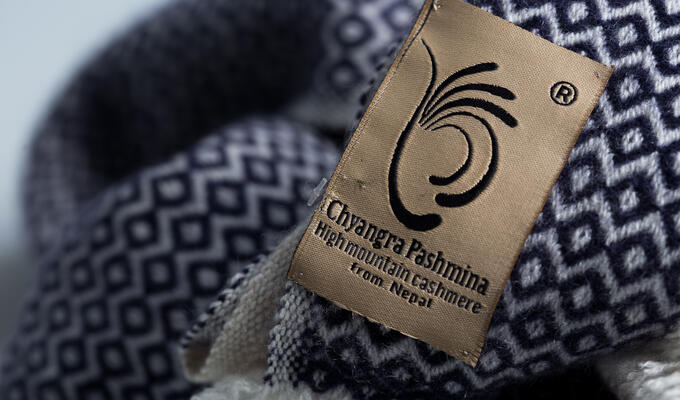
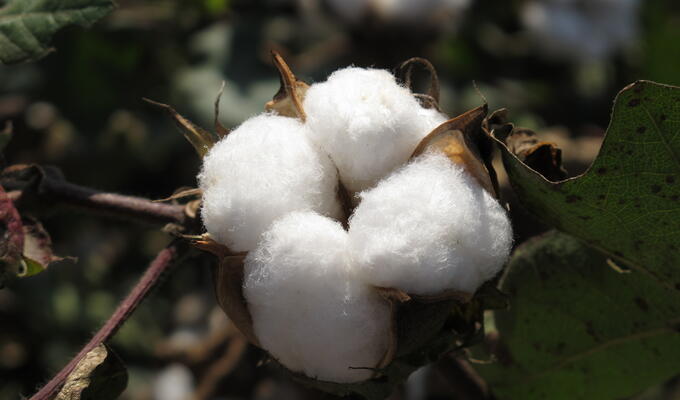
Fibres, textiles and clothing
The International Trade Centre works proactively in developing countries to reduce poverty and create jobs, especially for women. Through trainings, coaching sessions, in-depth studies, ITC's works in several Least Developed Countries, focusing on strategic labour-intensive fibre crops such as cotton and cashmere that generate income and jobs for millions of rural families and ensure important export revenue.
We also focus on textile manufacturing as this is a capital intensive sector. Developed countries are typically the major producers and exporters, apart from larger Asian textile producing countries. In this case, we help micro, small and medium-sized enterprises to move from simple cut-and-sew operations to complete package offerings, thereby building up their competitiveness in the global apparel value chain.
We are active along the entire fibre-to-clothing manufacturing and artisanal value chain: a highly globalized business with different sectors, particular characteristics, geographical locations, and stakeholders. Read more about our work in cotton, cashmere/pashmina and textiles below.
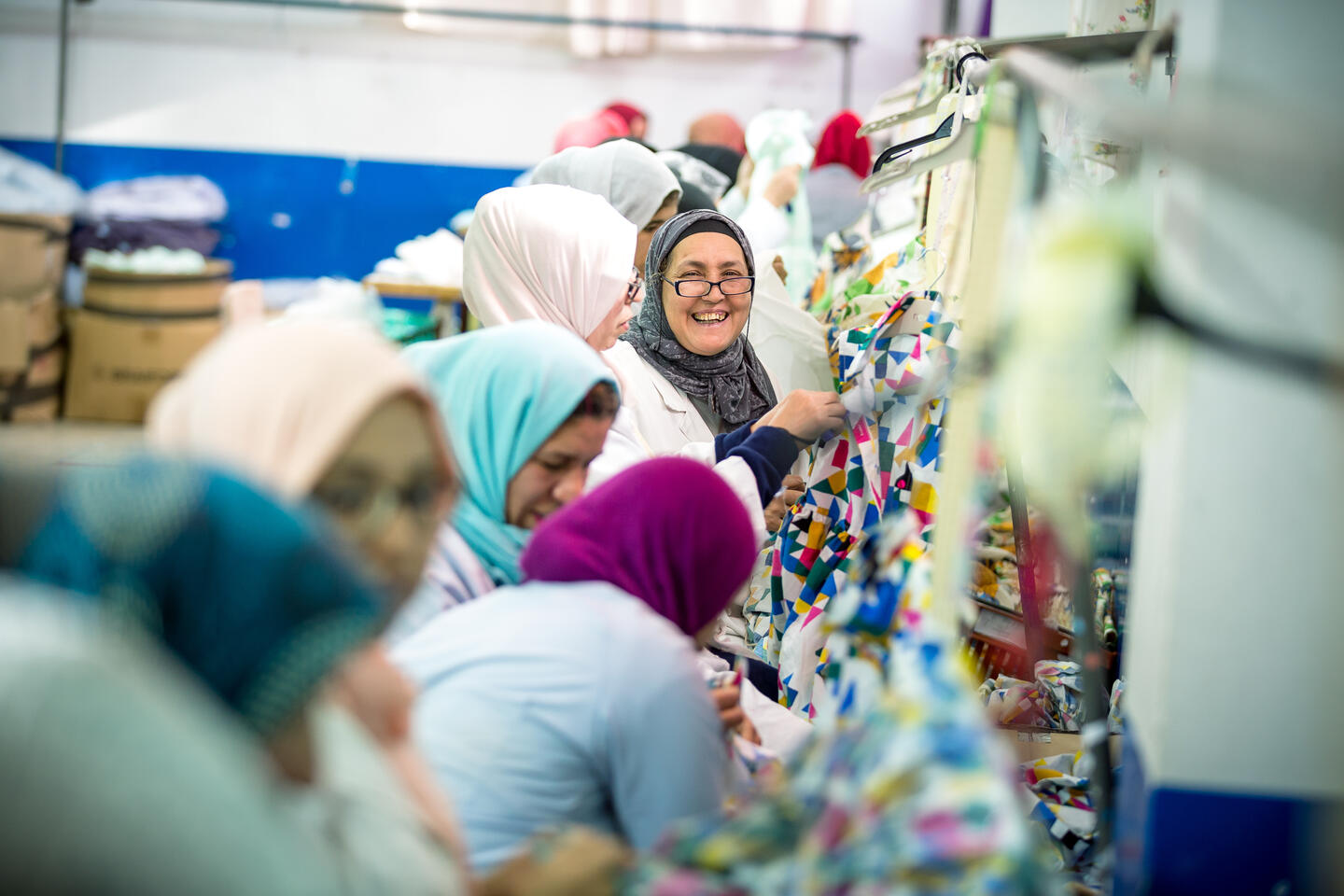
The cotton sector in Africa provides income for millions, particularly those living in rural areas, and is essential for foreign exchange earnings. ITC's work in this sector leverages Africa's comparatively low environmental footprint in producing cotton, so that investing in African cotton means investing in sustainability.
We strongly support both adding value to the fibre and capturing the full potential of cotton by-products, often neglected in many African countries. Overall, we aim to make Africa a stronger player in the international cotton trade and supply value-added products from all plant parts.
We work with ginner and farmer associations as well as cotton regulators to improve institutional performance and better the sector. We also facilitate south-south cooperation and sell cotton-related products to other textile and clothing producing countries, attracting their investments, and sourcing cotton-related inputs to boost the African sector.
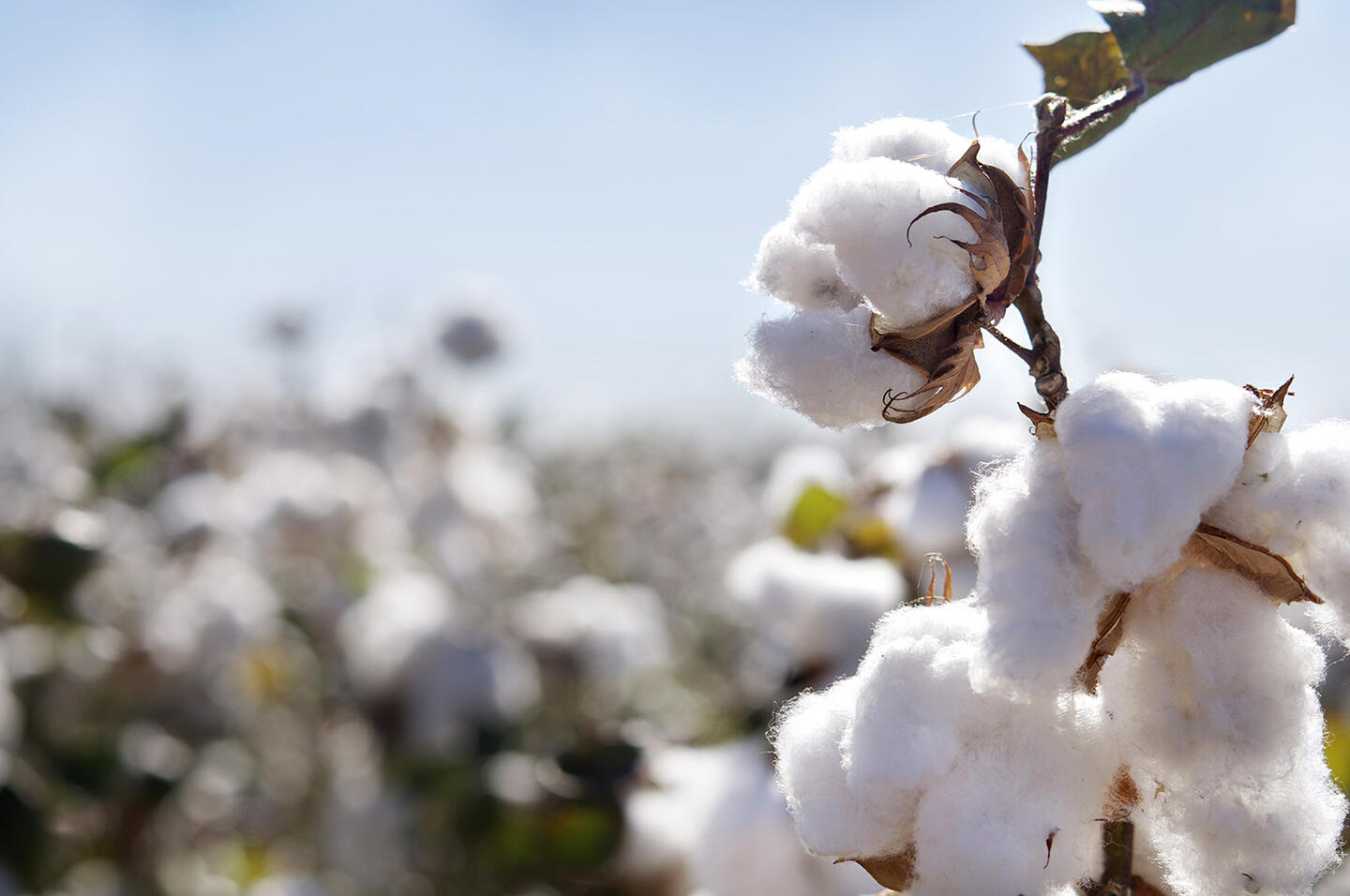
Zambia Cotton Development
In Zambia we are working to increase cotton productivity and yields. We work with farmers and ginners so they can add value to their products through hand-spinning and weaving. This enables the farmers to create new artisanal products that provide them with regular year-round income, thereby protecting them from price and weather shocks. We also help them take advantage of the full cotton plant by developing cotton by-products from seeds to oil, cakes and meals, and using the cotton stalks for biomass.
Our work is part of the EU-financed African, Caribbean and Pacific States Business-Friendly programme, where we support value chains by promoting inclusive policies, investment promotion and businesses alliances. In Zambia, we coordinate with several stakeholders, such as the Cotton Board of Zambia, the Cotton Development Trust, the Cotton Association of Zambia, and the Handloom Textiles and Technologies Association of Zambia. At the government level, our primary counterpart is the Ministry of Commerce, Industry and Trade and the Ministry of Agriculture.
World Cotton Day
The United Nations General Assembly has officially recognized 7 October as World Cotton Day, as submitted by Benin, Burkina Faso, Chad, Côte d’Ivoire, and Mali. The UN Resolution acknowledges cotton's vital role in providing livelihoods and subsistence for millions of people and the crop’s broader economic and social impact around the world. World Cotton Day contributes to raising awareness in the international community about the valuable contribution of sustainable cotton in achieving the 2030 Agenda for Sustainable Development.
Video
Pashmina is an outstanding type of cashmere wool prized globally for its softness and warmth which comes from four related breeds of goats in the Himalayas. Nepal is renowned in the luxury market for its high-quality pashmina wool. The fine fibres that come from its Chyangra mountain goats are particularly well regarded.
ITC is supporting the development of the Chyangra Pashmina trade strategy and action plan with the full participation of stakeholders along the value chain, working with goat farmer cooperatives in Upper Mustang to support farmers in developing their value addition skills, and boosting the international competitiveness of Chyangra Pashmina products through capacity development support at the institutional and enterprise levels.
Our work is funded by the EU-Nepal Trade-Related Assistance: Facilitating Increased Trade and Participation in Coffee and Pashmina Value Chains Project.
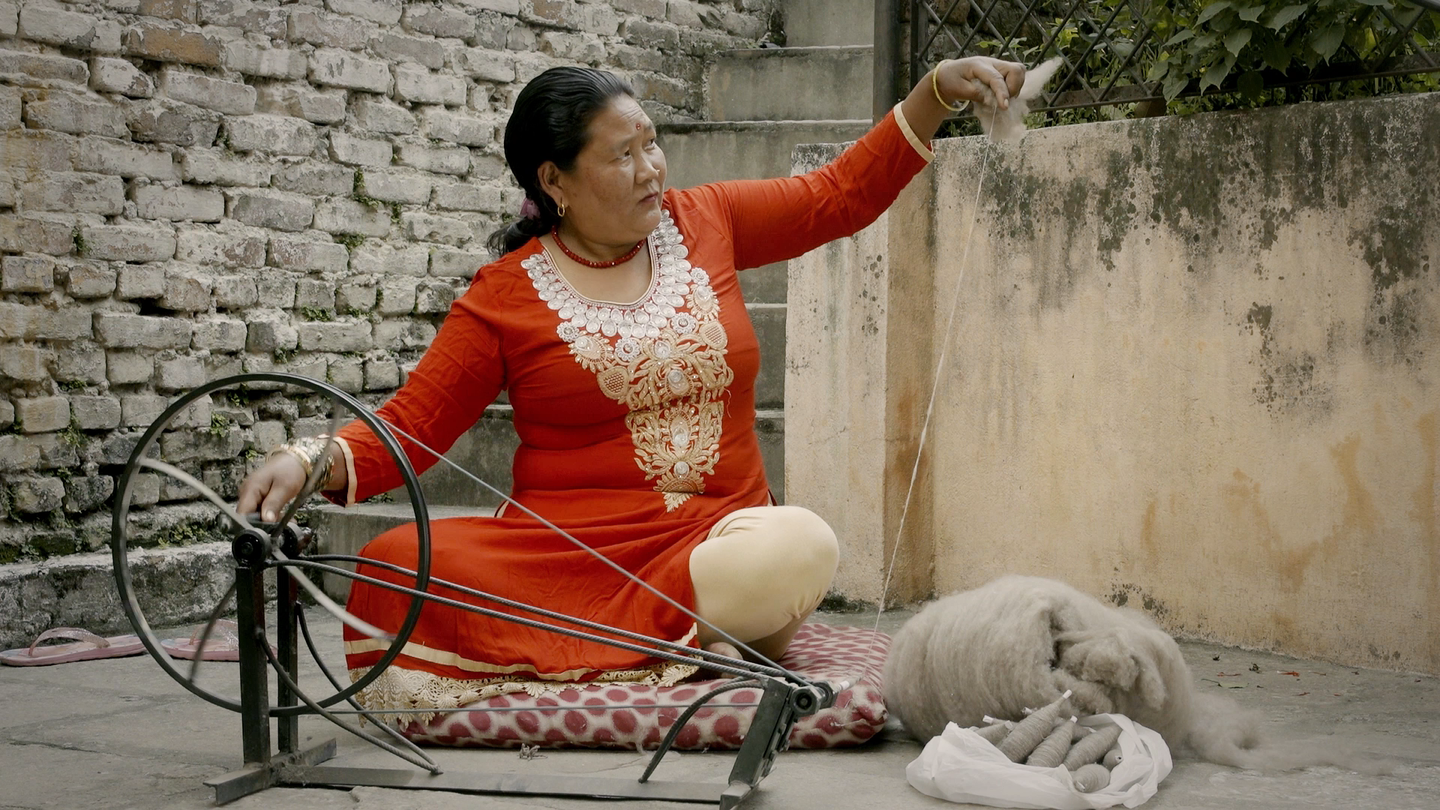
Micro, small and medium-sized enterprises (MSMEs) offering cut-and-sew are no longer sustainable models. To achieve the employment targets envisaged by governments, companies must move up the global apparel value chain by diversifying their portfolios and in some cases developing their products.
To help build up the export competitiveness of the Textile and Clothing (T&C) sector in developing countries, ITC is:
- Building up SME competitiveness to move up the value chain
- Fostering improved institutional ecosystems to support the sector
- Facilitating knowledge management and sharing at the regional level
- Introducing lean manufacturing and ensuring companies' social and environmental performance.
